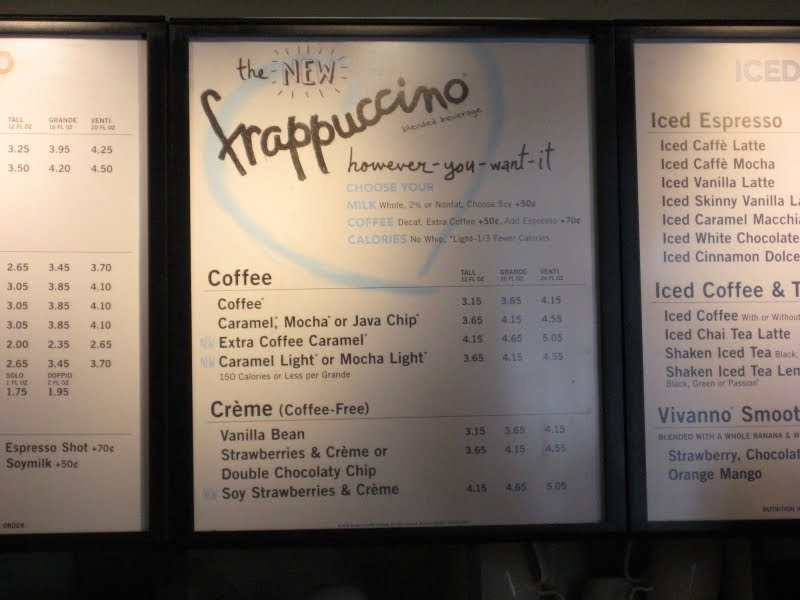Frappe price has become a topic of interest for many beverage enthusiasts and businesses alike. In recent years, the popularity of frappes, a blended iced coffee drink, has surged, leading to a significant variation in pricing across different locations and brands. This article dives deep into the factors influencing frappe price, providing insights that can help consumers make informed choices and businesses strategize their pricing effectively.
As the global coffee culture continues to evolve, frappes have established themselves as a favorite among consumers, especially during warmer months. Many coffee shops and cafes offer their unique twists on this classic drink, which can lead to a wide range of prices. Understanding the elements that affect frappe pricing can help you appreciate the value of what you’re consuming.
This extensive guide will explore the various factors that influence frappe prices, from ingredient quality and preparation methods to regional variations and market demand. Whether you're a consumer wanting to know why a frappe costs what it does or a business owner looking to optimize your menu pricing, this article is designed to equip you with valuable knowledge.
Table of Contents
- What is a Frappe?
- Factors Influencing Frappe Price
- Average Frappe Price by Region
- Menu Pricing Strategies for Frappe
- The Role of Ingredient Quality
- Impact of Branding on Price
- Seasonal Variations in Price
- Conclusion
What is a Frappe?
A frappe is a popular iced coffee drink that is typically made by blending coffee with ice, milk, and sweeteners. Originating in Greece, frappes have evolved into various forms and flavors, making them a staple in coffee shops worldwide. The basic ingredients usually include:
- Coffee (instant or brewed)
- Ice
- Milk (whole, skim, or alternative milk)
- Sugar or sweeteners
- Flavorings (e.g., chocolate, vanilla, caramel)
Factors Influencing Frappe Price
Several factors contribute to the pricing of frappes in cafes and restaurants. Understanding these elements can provide clarity on why prices may vary significantly from one establishment to another:
1. Ingredient Quality
The quality of the ingredients used can dramatically affect the price of a frappe. Premium coffee beans, organic milk, and high-quality syrups can lead to higher costs, which are often passed on to consumers.
2. Preparation Methods
How a frappe is prepared also plays a role in its pricing. Manual preparation often takes more time and skill than using pre-made mixes, which can influence labor costs and, consequently, the final price.
3. Location
Geographic location can impact frappe pricing. Urban areas with a higher cost of living typically have more expensive menus compared to rural regions.
4. Market Demand
During peak seasons, such as summer, demand for frappes tends to rise, which can lead to higher prices. Conversely, prices may drop during off-peak seasons.
Average Frappe Price by Region
Frappe prices can vary widely depending on the region. Here’s a breakdown of average prices based on location:
- North America: $4 - $6
- Europe: €3 - €5
- Asia: ¥500 - ¥800
These averages highlight the disparities in pricing that can occur due to various economic factors and consumer preferences in different regions.
Menu Pricing Strategies for Frappe
For business owners, developing an effective pricing strategy is crucial for profitability. Here are some key strategies to consider:
- Cost-Plus Pricing: Calculate the total cost of making the frappe and add a markup to ensure profit.
- Competitive Pricing: Analyze competitor prices and set your own prices accordingly.
- Value-Based Pricing: Price based on the perceived value of your product, especially if you offer unique flavors or premium ingredients.
The Role of Ingredient Quality
Ingredient quality is a critical factor in determining frappe price. High-quality ingredients not only enhance the flavor but also appeal to health-conscious consumers. Here are some considerations:
- Use of organic or locally sourced ingredients can justify higher prices.
- Specialty coffee beans may come at a premium, affecting overall pricing.
Impact of Branding on Price
Brand image plays a significant role in consumer perception and pricing. Well-known brands may charge more for their products due to established reputation and customer loyalty. Consider the following:
- Strong branding can allow for premium pricing.
- Consumers may be willing to pay more for a drink from a brand they trust.
Seasonal Variations in Price
Frappes often see price fluctuations based on the season. During summer, the demand for cold beverages rises, leading to potential price increases. Conversely, prices may drop in cooler months when demand is lower. Businesses can capitalize on this by offering seasonal specials.
Conclusion
Understanding the factors that influence frappe price can empower both consumers and business owners. By recognizing the importance of ingredient quality, preparation methods, and market demand, you can make more informed decisions about what you purchase or how you price your offerings. Whether you're indulging in a refreshing frappe on a hot day or strategizing your cafe's menu, knowledge is key.
If you found this article helpful, please consider leaving a comment below or sharing it with others who might benefit from this information. For more insights on beverages and pricing strategies, feel free to explore our other articles!
Thank you for reading, and we hope to see you back for more engaging content!




